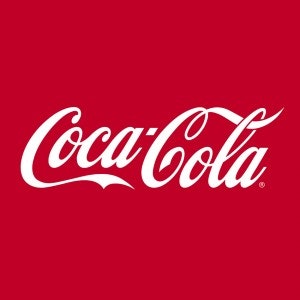With about 17% of the world’s population, an emerging middle-class of young consumers and an increased rate of urbanization, Africa is starting to become the ‘new China’ in the eyes of emerging market investors. Growing roughly three times faster than the rest of the world, the story of the African middle-class is finally becoming a reality, albeit still in its very early chapters.
The example to follow
Large multinational corporations looking to do business in Africa can learn a lot from the The Coca-Cola Company (NYSE:KO)’s example. Coca-Cola has a presence in nearly every country on this planet (basically every country they are legally allowed to do business in). This includes all 54 nations of Africa. Coke is committed to making Africa the next major area of growth for the company. Or the last major area of growth, as Africa is really the only relatively-untapped region left to The Coca-Cola Company (NYSE:KO) for major expansion. According to Coca-Cola, the company is already the largest private-sector employer in the entire continent. To put it simply, Coca-Cola knows a thing or two about doing business in Africa.

Not as easy as it looks
Despite The Coca-Cola Company (NYSE:KO)’s example, expansion into Africa is far from simple. Yum! Brands, Inc. (NYSE:YUM)’s Kentucky Fried Chicken has been in Africa for more than 40 years and is seen as an aspirational brand by many. But their operations have been mostly limited to restaurants in very north and south of the continent (around 123 KFCs in Egypt, 689 in South Africa). It has only been its relative recent history that Yum! has committed to aggressive African expansion, with the goal of having 1,200 KFC restaurants in Africa by 2014. But as they begin to expand outward from their two primary countries of operations, we begin to see why Yum! had not tried this aggressive expansion plan years ago.
What Yum! Brands, Inc. (NYSE:YUM) has realized long ago was that much of Africa lacks the infrastructure and farming operations to supply KFC with a reliably safe and quality chicken product at the quantities Yum! requires for further expansion. In some countries, chicken meat is imported from Chinese chicken farms; which KFC in China recently had high-profile quality control issues with. And it is not limited to just chicken, as some African KFC restaurants do not include lettuce on their chicken sandwiches because of a lack of quality lettuce suppliers in certain countries.
In Nigeria, the problem of government regulation and industry protectionism is well seen, where it is illegal to import chicken meat from any country. This has made getting the necessary supplies even more of a challenge for KFC in Nigeria. So much so that it has forced KFC to include fish items on menus to make up for the lack of quality Nigerian-raised chicken.
This has not deterred Yum! Brands, Inc. (NYSE:YUM) Brands though. The company sees Africa as their next major region of emphasis for growth after China. That growth just might not materialize on Yum!’s balance sheet in the short-term as they make investments to improve and develop African food supplier relationships.
The old college try
Unlike its fellow US multinational brethren, the world’s largest retailer, Wal-Mart Stores, Inc. (NYSE:WMT), has only recently entered the African expansion game. In 2011, Wal-Mart acquired a 51% stake in Massmart, a South African retailer of general merchandise stores, home improvement stores, grocery stores and warehouse clubs. Wal-Mart Stores, Inc. (NYSE:WMT)’s majority stake in Massmart gives it 379 stores as of today and exposure to 12 African nations (though the majority, about 88%, of those African stores are located in South Africa).
Although very early in its plans for Africa expansion, and Massmart’s sales have indeed grown since the acquisition, Wal-Mart Stores, Inc. (NYSE:WMT)’s attempts at African growth have not met analysts’ expectations. And just last week, Massmart reported soft sales and expects a further slowing of sales growth for the rest of the year due to weakening South African consumer demand across Massmart’s retail segments.
Despite these short term troubles, Wal-Mart Stores, Inc. (NYSE:WMT) and Massmart continue full steam ahead with their expansion strategy. The two companies will open about 27 new stores by the end of the year, including more in South Africa, as well as Botswana and Mozambique (their next two largest African countries of operation).
Bottom line
While the African continent overall appears poised to become one of the next great success stories, there can be a very large disparity between the relative politically and economically stable nations, such as South Africa, and the more extreme poverty-stricken and war-torn nations. And with 54 countries, a few dozen European, Middle Eastern and African official country languages and a wealth of different cultures, histories and religions, Africa cannot be thought of as a single market (culturally or economically). But for companies with the ability and know-how to navigate through this beautifully diverse continent, Africa and its1 billion people present investors with a great opportunity for future growth.
The article Targeting Africa as the ‘New China’ originally appeared on Fool.com and is written by Matthew Luke.
Copyright © 1995 – 2013 The Motley Fool, LLC. All rights reserved. The Motley Fool has a disclosure policy.

